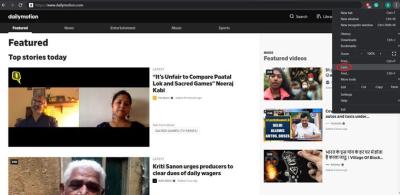Reposting a job on LinkedIn can be perplexing, especially if you're actively searching for employment. You may wonder if it’s a sign that the previous hires didn't meet expectations, or perhaps the job itself is less desirable. In this blog post, we’ll dig into the reasons behind job reposting, helping you understand the dynamics of the job market better. Let's explore the common reasons why companies choose to repost job listings on LinkedIn.
Common Reasons for Job Reposting

When you see a job reposted on LinkedIn, it can mean various things for both job seekers and employers. Here are some of the most common reasons for this practice:
- Insufficient Quality of Applicants: Sometimes, a company may receive numerous applications, but none meet their qualifications. They might decide to repost to attract more qualified candidates who better fit the role.
- Extending the Hiring Timeline: Companies may not have found the right candidate within their initial timeframe. Reposting allows them to broaden their search and keep the applicant pool fresh.
- Change in Job Requirements: If the needs of the role have shifted, employers may repost the job with updated qualifications. This ensures they attract candidates who possess the newly desired skills or experience.
- Reorganization or Change in Leadership: A shift in leadership can lead to a reevaluation of roles. The position may be reposted to align with new objectives or company direction.
- Increased Competition: In a competitive job market, employers may repost roles to stay relevant. This could be to keep their brand visible while scouting the best talent.
- Technical Errors or Glitches: Sometimes, it's simply a mistake! An employer may accidentally repost due to a technical issue within the LinkedIn platform.
Understanding these factors can help you navigate your job search more effectively, ultimately providing insights into the employer's perspective during the hiring process. Happy job hunting!
The Role of Applicant Feedback
When it comes to understanding why jobs get reposted on LinkedIn, applicant feedback plays a pivotal role. Think of it as the communication bridge between employers and potential candidates. Let’s break down how feedback can influence the repetition of job listings.
First off, companies often receive a range of applications, many of which may not fit the job criteria. This can lead to a reassessment of the job description itself. Here are some key areas where applicant feedback is crucial:
- Quality of Applications: If employers notice that the skills and experiences of applicants are misaligned with the job’s requirements, they may decide to adjust the listing to attract a more suitable pool of candidates.
- Candidate Experience: Feedback on the application process itself matters. If candidates express frustration about unclear instructions or lengthy processes, companies might repost the job listing, incorporating improvements that encourage better applications.
- Interest Level: Tracking how many applicants are genuinely excited about the position can also influence whether a job gets reposted. If there’s a lack of enthusiasm, the company might tweak the description or even the benefits associated with the role.
In essence, applicant feedback is a valuable tool that helps organizations refine their hiring strategies. By understanding what candidates think, companies can repeatedly repost jobs that better reflect their needs and attract the right talent.
Changes in Company Needs and Strategy
Another vital reason jobs frequently get reposted on LinkedIn is the evolving needs and strategic direction of companies. The dynamics of the job market and organizational priorities can change rapidly, leading to job repostings.
Consider these points that illustrate how company shifts can necessitate reposting:
- Internal Restructuring: If a company goes through a reorganization—perhaps due to mergers or acquisitions—it may realize that the skill sets required for a certain position have changed. This could prompt a reposting of the job to attract candidates with the new necessary qualifications.
- Market Demands: Shifts in industry trends can also prompt a company to reevaluate its workforce needs. For example, if there's a rise in digital marketing, an organization may decide to repost a marketing role to better align with current strategies.
- Budget Changes: Sometimes, budget fluctuations can lead to a reassessment of existing roles. If a company reallocates resources, they might repost positions with adjusted salaries or responsibilities to attract candidates in line with new budgetary constraints.
In summary, as companies adapt to market realities and internal changes, they frequently revisit their job postings. This ensures that they attract talent that aligns with their current and future objectives, ultimately enhancing their workforce alignment.
5. Impact of Increased Competition
In today's job market, competition has reached unprecedented levels. So, why does it matter that jobs get reposted on LinkedIn? Well, this often signals that there are numerous candidates vying for the same position, which can have a real impact on your job search. Here are a few insights on how increased competition plays a role in job reposting:
- Fresh Talent Pool: Employers may repost a job to attract a new wave of candidates. They might realize that their initial batch didn't pin down the exact feel they were looking for, hence re-promoting the role can help them find a better fit.
- Expired Applications: Sometimes, a job posting becomes stale if the applicant pool is limited. By reposting, companies can tap into the vast network of LinkedIn users, ensuring they receive applications from a broader audience.
- Enhanced Brand Visibility: Reposting a job can also serve as a marketing tool for companies, showcasing their brand and drawing attention to their workplace culture. This visibility can help build interest not only in the role but in the organization as a whole.
- Improvements in Position Requirements: As companies evolve, their needs change. By reposting the job, they might also redefine the qualifications or skills they seek, which may encourage more candidates to apply.
So the next time you see a job reposted on LinkedIn, remember that it reflects a dynamic job market and can open doors for job seekers looking to land their next role.
6. Strategies for Job Seekers
Navigating the competitive job market can feel a bit overwhelming, especially when you notice positions being reposted often. But don’t fret! There are several strategies you can adopt to enhance your job search and increase your chances of landing that desired role. Here are some effective approaches:
- Tailored Resumes: Ensure your resume specifically aligns with the job description. Highlight skills and experiences that directly match the requirements. This shows employers that you’re a perfect fit.
- Networking: Leverage your LinkedIn connections. Reach out to former colleagues or classmates who might have insider knowledge about the company or position. A referral can significantly boost your chances.
- Follow-Up: After applying, a polite follow-up can go a long way. It shows your continued interest in the position and may help keep your application on the recruiter’s radar.
- Upskill: Use the time while you’re job searching to enhance your skills. Online courses can help bridge any gaps. Plus, showcasing newly acquired certifications on your LinkedIn profile can make a strong impression.
- Stay Positive: The job search can be a roller coaster of emotions. Maintaining a positive attitude can keep you motivated. Celebrate small wins, like getting through the first interview or connecting with someone new!
By employing these strategies, you’ll not only improve your chances of securing a job but also feel more confident in your search. Remember, every job repost represents a new opportunity waiting for the right candidate—make that candidate you!
Understanding Why Jobs Get Reposted on LinkedIn
LinkedIn has become an indispensable platform for both job seekers and employers. One of the common occurrences that many users notice is the frequent reposting of job listings. Understanding the reasons behind this phenomenon can provide insight into the job market and hiring practices on LinkedIn. Below are several key reasons why jobs may get reposted:
- Role Not Filled: The most common reason for reposting is that the initial job search did not yield suitable candidates. Employers may choose to repost the listing to widen their candidate pool.
- Changes in Job Requirements: If the criteria or responsibilities associated with a job change, employers may repost the listing to attract candidates who better fit the updated requirements.
- Increased Visibility: Reposting helps in increasing the job's visibility. Many users may have missed the original posting, and a repost can attract fresh attention.
- Expired Listings: Job postings typically have a lifecycle. When a listing expires, companies may repost it to keep their search active.
- Refresh the Listing: Reposting can be part of a strategy to keep a job advertisement at the top of search results, ensuring that it stays relevant in a competitive job market.
| Reason | Description |
|---|---|
| Role Not Filled | Initial hiring search was unsuccessful. |
| Changes in Job Requirements | Adjustments made to attract the right candidates. |
| Increased Visibility | New candidates can discover the job. |
| Expired Listings | Jobs that need to remain open for applications. |
| Refresh the Listing | Keeps the job at the forefront of job searches. |
In conclusion, the reposting of jobs on LinkedIn serves various strategic purposes for employers—from filling roles effectively to adapting to shifting job market trends. Understanding these reasons can help job seekers navigate the platform more effectively and increase their chances of finding the right opportunity.










